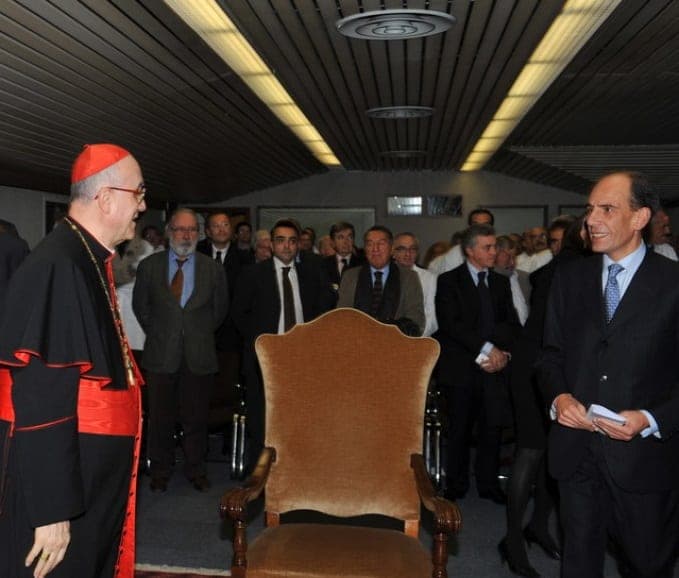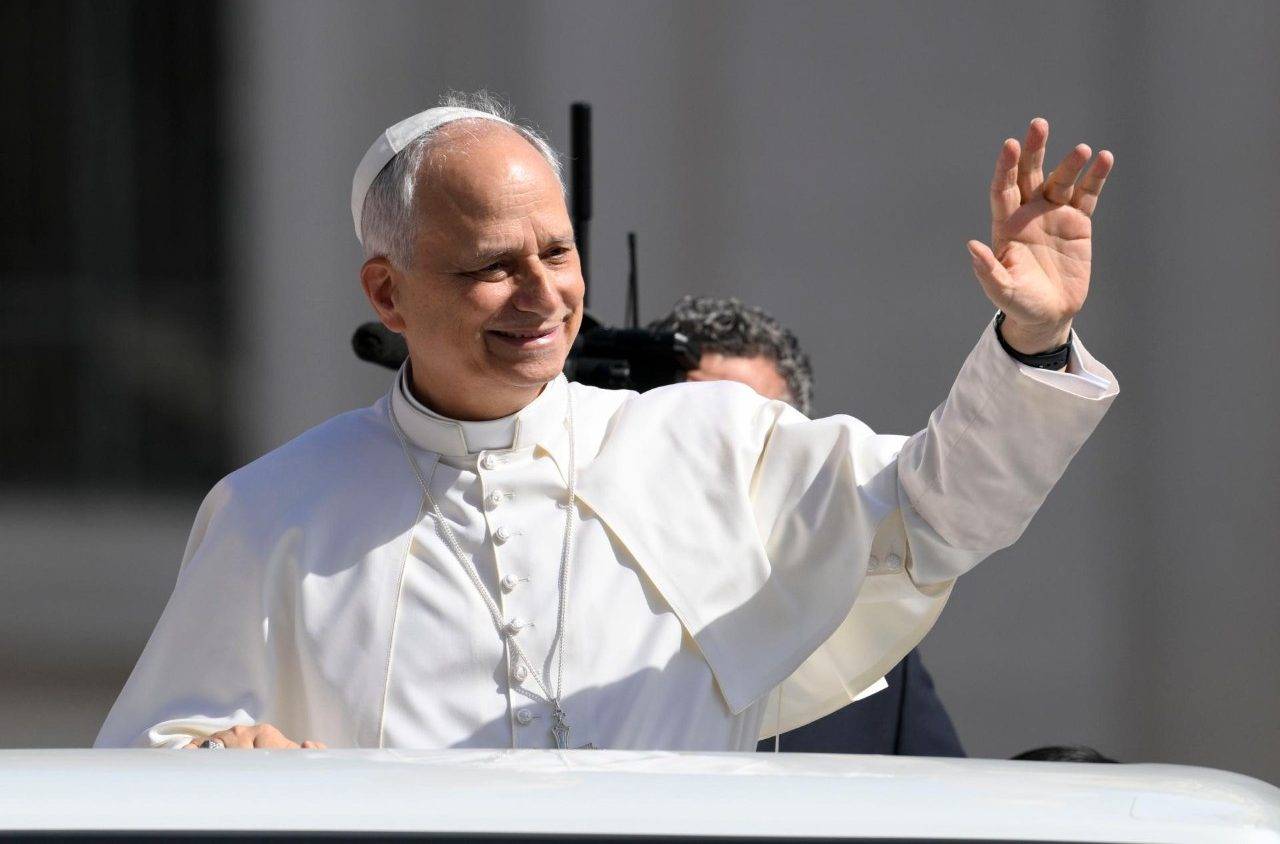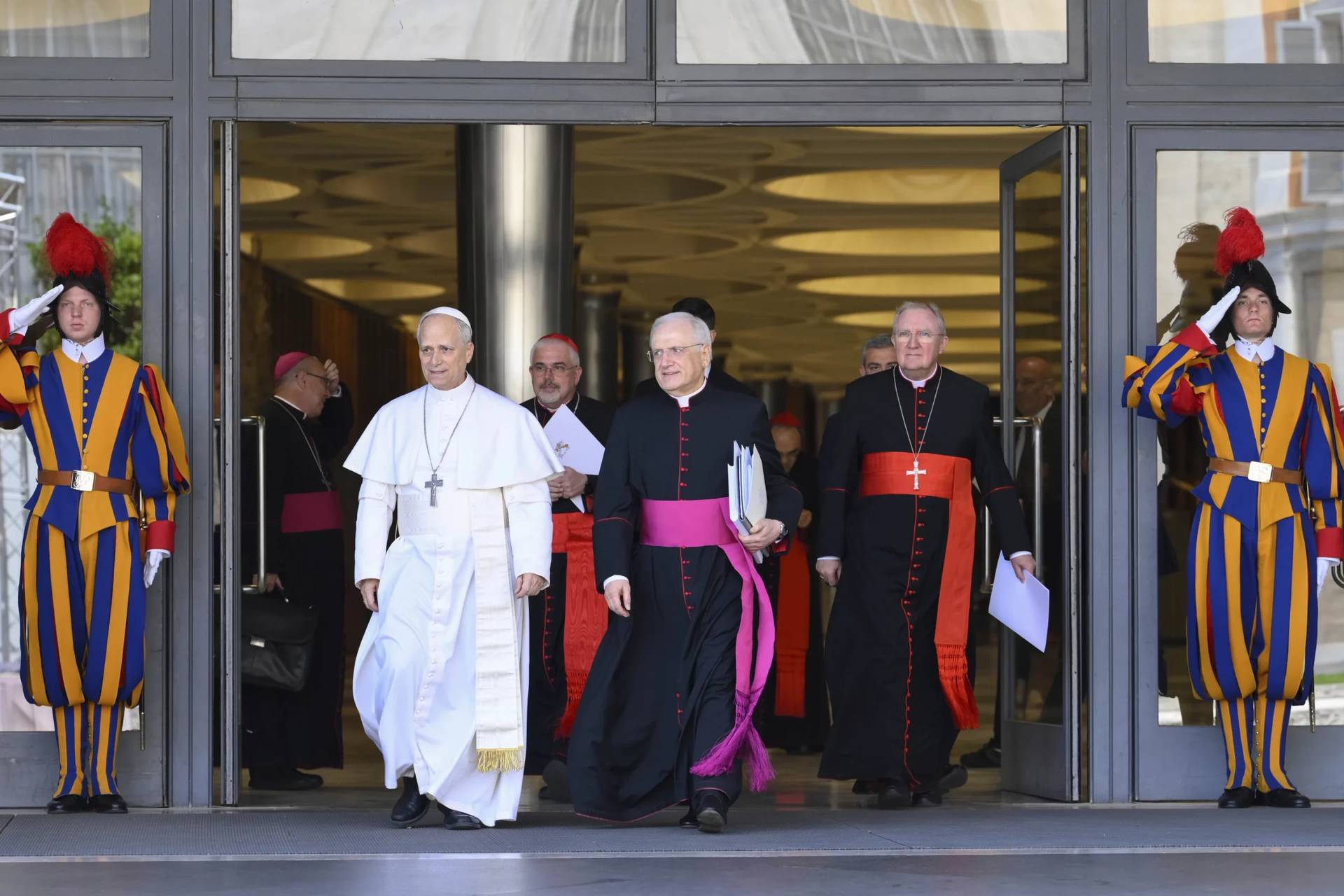As the latest Vatican trial opened on Tuesday for alleged criminal shenanigans, it occurred to me that you really have to go all the way back to the 1800s to find the last time the “courthouse beat” formed any part of covering the Vatican for most reporters in Rome.
In that era, the pope still ruled over a swath of territory in central Italy known as the “Papal States,” and criminal trials were a regular event. The pope even had his own executioner, the most famous of which was “Mastro Titta,” a nickname that was a corruption of the Italian phrase maestro di giustizia, or “master of justice.”
So famous was he in the mid-19th century that Roman mothers sang their little ones to sleep with a rhyme that goes, “Sega, sega, Mastro Titta.” Segare is the Italian verb “to saw,” so the mental image is ghoulishly accurate.
In the century and a half since, the Vatican has banned capital punishment, and today is a global leader in the abolitionist movement. The pope now only exercises civil power over about 109 acres of territory, representing the physical footprint of the Vatican City State.
Yet criminal trials are nevertheless back with a vengeance – after “Vatileaks” in 2012 and “Vatileaks 2.0” in 2016, both cases of leaking confidential documents that featured convictions of the pope’s butler in the first and a lay woman who gave birth during trial in the second, we now have the first prosecutions in 2017 under new Vatican laws to fight financial crime.
Crux covered the opening act of the trial, the facts of which are not really in dispute. Two former officials of the Bambino Gesù, Rome’s papally-sponsored pediatric hospital, named Giuseppe Profiti and Massimo Spina, used almost a half-million dollars of hospital funds to spruce up the Vatican apartment of Italian Cardinal Tarcisio Bertone, the former Secretary of State under Pope emeritus Benedict XVI.
What’s at issue is whether the expense was a legitimate investment in future fundraising events at Bertone’s apartment, as Profiti has insisted, or an illicit way of lining the pockets of another Italian businessman and his construction company, as prosecutors allege.
The trial has been adjourned until September 7, so we’re going to have to wait a while for the main event. Until then, here are three notes from around the edges, all of which suggest this could end up being another terrific Roman soap opera.
The “About Doctrine”
Since we’ve invoked the Papal States, it’s useful to go back to a figure widely considered the best chronicler of the last part of that era – French novelist and journalist Edmond François Valentin About, and his classic 1859 work The Roman Question.
About was an avowed anti-clericalist, so he wrote with an agenda, but that doesn’t make his insights any less acute. When it came to the administration of criminal justice in the Papal States, here’s the doctrine he proffered: “If occasionally officials of a certain rank are punished, if even the law is put in force against them with unusual vigor, rest assured the public interest has no part in the business. The real springs of action are to be sought elsewhere.”
(A shout-out to my Crux colleague Charles Collins, who reminded me of the citation.)
To illustrate the idea, About used the case of a minister of the public pawnbroking establishment in the Papal States (yes, that was a real job), who drained funds from his office to finance his private art collection. Though it was an open secret and abundantly documented, he was never troubled about it until Cardinal Giacomo Antonelli, the legendary mid-19th century Secretary of State, decided he wanted to put his brother into the minister’s job, whereupon a great crime was discovered, a prosecution was launched, and the minister was sentenced to twenty years hard labor.
(About also speculated there could be another reason for the crackdown: The minister, a layman, “took the liberty of rising in the world without wearing violet hose.”)
So, if one were to apply the “About Doctrine” to the prosecution of Profiti and Spina, what non-public interest end might be served?
The tempting answer is that by pinning the affair on the two members of the laity involved, Bertone is insulated from liability, so that the tribunal doesn’t have to face the politically and legally complicated task of trying to convict a cardinal – one, by the way, who still has friends in high places.
It’s not yet clear if Bertone will be asked to testify in the trial, either in writing or in person, and what he might have to say. He’s steadfastly maintained his innocence, although skeptics may have a hard time believing the two laity who diverted funds to Bertone are guilty of a criminal act, while the cardinal who received them, and who continues to benefit from them, isn’t.
Bertone did offer a $170,000 contribution to Bambino Gesù after the scandal first went public. Adding fuel to the fire of suspicion, the Italian businessman whose construction company got the contract is a longtime friend of Bertone.
(Finally, a footnote to About’s story: The convicted minister was later released and became a minor celebrity in the Papal States, with one cardinal even allowing him use of his private kitchen. About wrote, “Condemnations are a dishonor only in countries where the judges are honored. All the world knows that the pontifical magistrates are not instruments of justice, but tools of power.”)
We’ll see if the take-away in the 21st century turns out to be different from the 19th.
Coincidental timing?
At Tuesday’s preliminary hearing, after the tribunal rejected a pro-forma defense request to dismiss the case, it was announced that the first hearings will take place Sept. 7, 8 and 9, after the traditional Italian summer break in August for Ferragosto, a holiday that technically falls on August 15, but which functions as an excuse for many Italians to take more or less the entire month off.
As it happens, those dates also coincide with Pope Francis’s long-awaited trip to Colombia, which will unfold Sept. 6-11, meaning that most of the “A-list” talent in terms of covering the Vatican will be on the road with the pope.
It’s worth remembering that the early stages of the last sensational Vatican trial, “Vatileaks 2.0,” were likewise scheduled for late November 2015, at the same time Francis was leaving for a trip to Kenya, Uganda and the Central African Republic.
Cynics, of course, will want to suggest that this is the Vatican equivalent of the White House releasing bad news late on a Friday afternoon, in an attempt to bury it while other stories dominate the news cycle.
Whether or not that’s the case, it didn’t really work the last time around. The spectacle of the “Vatileaks 2.0” case, featuring rumors of some sort of tryst between Italian laywoman Francesca Chaouqui and Spanish Monsignor Lucio Angel Vallejo Balda (which Chaoqui vehemently denied), not to mention Chaouqui’s repeated claims of martyrdom, was simply too strong to resist, no matter where the pope was in the world.
Time will tell if any effort to downplay the resonance of this case will succeed.
What’s in a Name?
Vatican-watchers of a certain age couldn’t help but chortle when the name of the lawyer representing Spina in the trial was announced: “Alfredo Ottaviani.”
For those old enough to remember the mid-1960s, the Vatican II era in Catholicism, Italian Cardinal Alfredo Ottaviani was the stuff of legend. He was the head of the Holy Office, later renamed the Congregation for the Doctrine of the Faith, and was perceived as the leader of the conservative opposition at Vatican II. Even his episcopal motto hinted at intransigence: Semper Idem, meaning “always the same.”
An old joke about that Ottaviani, which was a favorite during Vatican II, went like this:
One day, Ottaviani is across Rome for lunch with friends and needs to get back for the afternoon session of Vatican II. He hails a cab, gets in, and says, “Take me to the council.” The cabbie looks around, sees that it’s Ottaviani, and promptly drives him to Trent!
Among other things, Ottaviani took a dim view of the notion of “collegiality,” meaning greater power-sharing among the bishops, as opposed to reinforcing central authority in Rome. In a celebrated speech, Ottaviani noted that the Gospels only record one incident in which all the apostles acted collegially, and it was this: “They all fled.”
I made some half-hearted attempts this week to learn whether Spina’s lawyer is related to his famous namesake, but they proved fruitless and I gave up, since, in the end, for purposes of literary license, it really doesn’t matter.
There’s a natural headline waiting to be written, no matter which way you lean in the case, and I’m surprised one of the Italians hasn’t already gotten there. If you believe Profiti and Spina are guilty, you could make it: “Once again, Alfredo Ottaviani stands in the way of reform.” If you think they’re fall guys, it could be, “Once again, Alfredo Ottaviani stands up against the mob.”
Granted, those headers may not have much appeal for most younger Catholics today, for whom Vatican II might as well be Trent for all they remember about it. But for those long enough in the tooth, those headlines definitely would generate some buzz.














